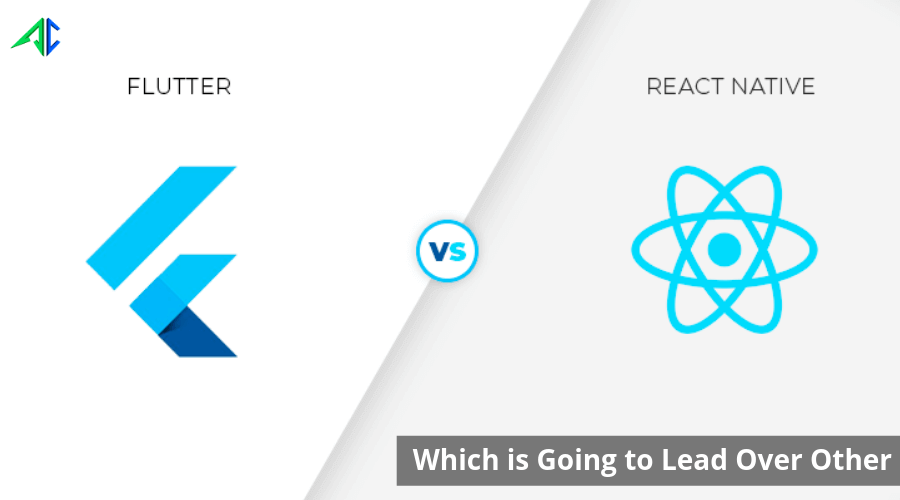Table of Contents
In this blog post, we have made a detailed comparison of React Native vs Flutter, the two most advanced frameworks for cross-platform app development and which one you should be preferred for business.
Cross-platform app development has been the most preferred choice among entrepreneurs for a long time. The reasons are speedy development process, cost-effectiveness, reusable code, etc., which are some of the greatest attributes of this approach.
Though there are numerous cross-platform app development frameworks available, React Native and Flutter are the two most advanced frameworks for cross-platform app development of late.
Launched in Sep 2018 by Google, Flutter continues to evolve as a top competitor of React Native. This has fostered the debate of React Native vs Flutter in 2019.
Will Flutter Replace React Native?
Well, these are certain common questions people frequently ask, especially those who are planning to go with cross-platform app development. Not to mention, React Native was launched in March 2015 by Facebook and has redefined the cross-platform app development.
So, It’s hard to say, whether Flutter will replace React Native, but, the growing popularity of Flutter is something that can’t be ignored.
Is Flutter Better than React Native?
Here, in this post, we are going to make a detailed comparison of React Native vs Flutter based on the following factors, to make everything quite clear and let you know who is the real winner.
React Native vs Flutter: The Difference
Debate on React Native vs Flutter will help businesses in finding the right solution that can match their business needs perfectly with cross-platform app development. Have a look at a major difference between Flutter and React Native:
Development Language
Flutter
What is Dart in Flutter?
It uses Dart, which is a general-purpose programming language developed by none other than the online search engine giant Google. Aimed for client-side development, Dart is appropriate for both mobile (iOS & Android) and web app development.
React Native
React Native is based on JavaScript development language and enables developers to create powerful mobile applications for different needs, efficiently.
User Interface
Flutter
Flutter works perfectly on a set of proprietary widgets. With proper use, Flutter lets you have a perfectly customized user interface accompanied with various native components and a great interoperability.
React Native
As the name suggests, React Native uses native UI components of React for iOS and Android, and delivers a seamless native experience. It’s known for dynamic cross-platform app development that can enhance user experience.
Architecture
Flutter
This cross-platform app development framework mainly follows the Dart app architecture library, which comes with a unidirectional data flow pattern that includes action, store, and store watchers.
React Native
It follows Flux architecture based on a unidirectional data flow. Flux is perfect to use for creating client-side web applications. Like every framework, it also follows the MVC framework. React takes care of visual whereas Flux takes care of the model in the MVC framework.
Development Time
Flutter
Flutter takes more time compared to React Native for app development. However, it assures higher usability and better recognition of the mobile app.
Does Flutter compile to native code?
Well, Flutter uses Dart language that is ahead of time (AOT) compiled to make highly predictable, quick, and native code. So, the answer is yes, Flutter compiles to native code.
React Native
React Native includes several ready-to-use components that reduce overall app development time and makes the process speedy. It helps developers in building world-class applications to cater to businesses.
You may also like to read: 10 Best Mobile Apps Built with React Native
Stability
In cross-platform, stability is an important factor, which can’t be ignored anyhow, especially when choosing the right cross-platform framework for your business.
Flutter
Flutter lags behind its rival in the stability of apps. The reason is only the alpha version of Flutter is available to app developers. But. it is appropriate for larger projects. However, Google’s announcement for Flutter beta 2 is a greater improvement in this arena. It comes with various improved tools that make it perfect for large projects.
React Native
React Native has a large community support, which makes it established in this industry. It also includes cutting-edge features, which help it earn huge appreciations and thus make it more stable.
Documentation & Tooling
Flutter
Documentation is something that gives Flutter an edge over its rival React Native. Flutter includes efficient and smooth documentation. It makes everything clear for developers and lets them perform their job with great efficiency.
React Native
React Native comes with a highly clumsy, disorganized documentation and a lot of missing things. It creates lots of problems for developers while performing their job.
Performance
Is Flutter better than React Native performance-wise?
To get the answer, you need to have a complete overview of Flutter vs React Native performance comparison.
Flutter
Google’s Flutter uses the Dart frame to get an edge over React Native. Besides, it also uses JavaScript to connect with certain great native components in more meaningful ways.
React Native
Though React Native enjoys a larger fan following and a vast community support, it doesn’t help developers to get rid of issues that they face during hybrid app development.
User Base
Flutter
Flutter doesn’t compete with rival React Native, especially when it comes to user base, as later already enjoys a vast user base. Though Flutter witnessed its higher popularity within a short span, still it has to go far to gain a vast user base and make a solid presence in this industry.
React Native
React Native is far ahead of Flutter in this arena. It has been the most popular framework to develop a cross-platform app. It is considered to be apt for any size of the project.
Industry Adoption
Flutter
As recently launched, Flutter is getting positive responses from developers as well as entrepreneurs. The Flutter adoption rate in many industries is gradually increasing. Some of the popular apps developed on Flutter are Google Ads, Cryptography, etc.
React Native
It enjoys a higher adoption rate among major industries. The majority of cross-platform apps are nowadays developed using React Native. Some popular apps are Facebook Ads Supervisor, Bloomberg, Uber Eats, etc.
Conclusion
So, who’s winner between Flutter vs React Native debate?
Now, everything is prima facie about both cross-platform frameworks and you can easily understand which framework has an edge over others. Flutter is a newbie in the cross-platform app development horizon, still, it enjoys vast popularity and thus has a higher industry adoption rate. Still, it has to go miles to compete with React Native.
We would love to hear your comments relating to the post. Got some other thoughts? Drop us words through our contact page.








